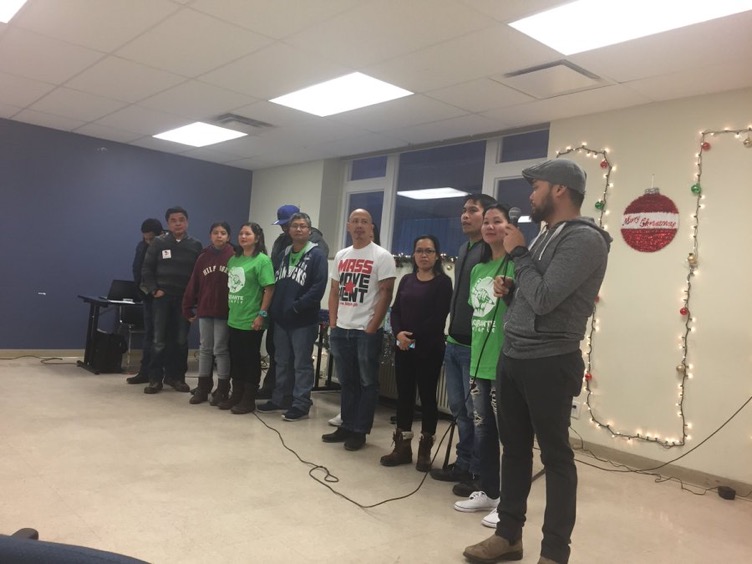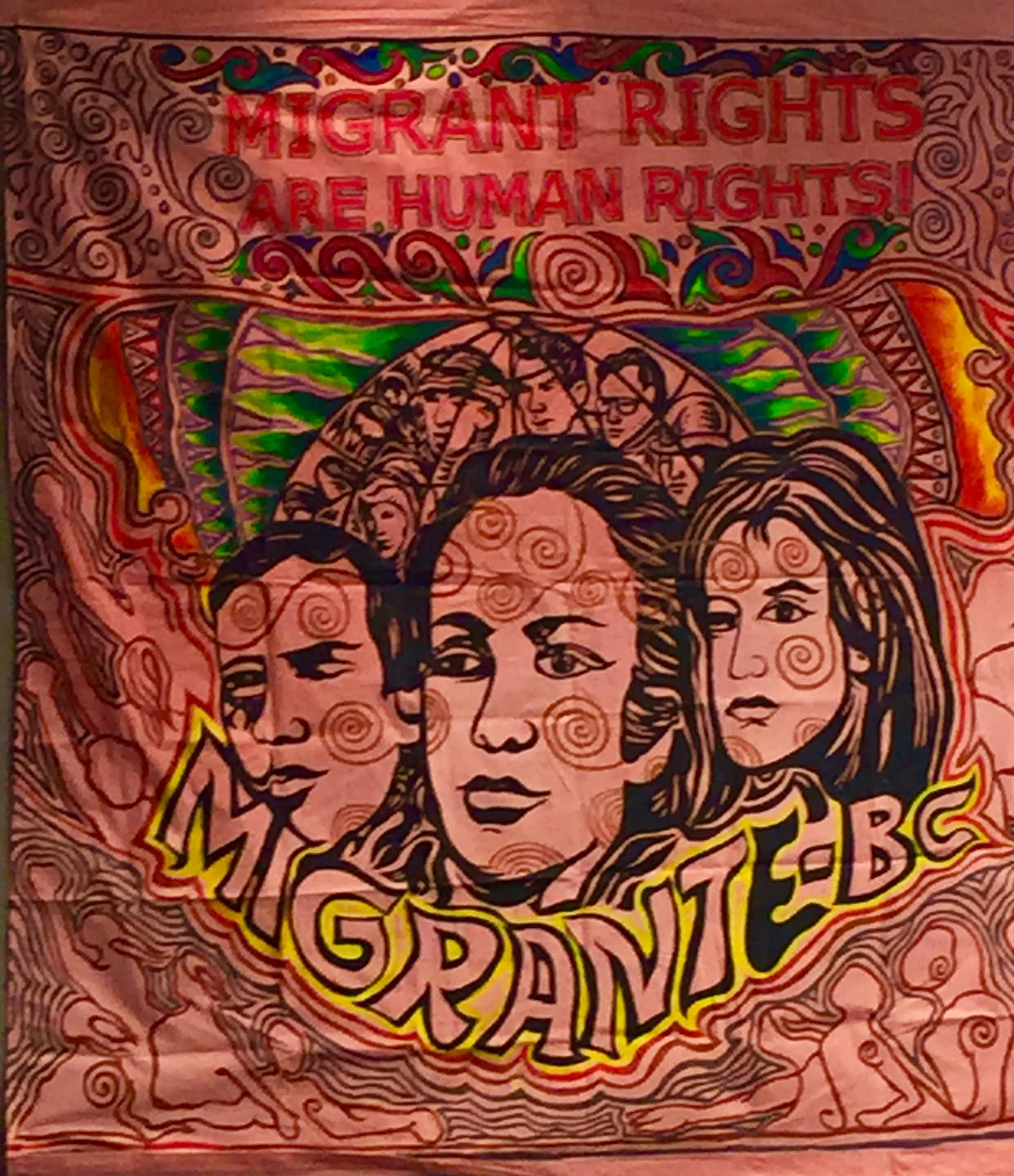Each year tens of thousands of temporary foreign workers enter Canada to perform jobs that the sponsoring employer has demonstrated no Canadian is willing to do. Many of these workers come from economically-precarious communities around the world, with the hope that the opportunity to earn Canadian wages can lift their families out of poverty.
We were tasked with aiding the International Human Rights Program’s advocacy around greater protection for migrant worker rights in Canada. We needed to understand the scope of the problem, and figure out how our advocacy would be most valuable to existing actors in the space. Given that migrant workers are often exposed to numerous human rights violations, we had no shortage of issues to focus on. After extensive consultations with affected parties, we were asked to focus on the practice of charging recruitment fees from migrant workers. To that end, Alexis reviewed Canada’s obligations to migrant workers as determined by its international commitments and Ramz analyzed domestic federal and provincial legislative and regulatory instruments that informed both governments obligations to protect migrant workers.
When we began our project, we felt privileged to interact and advocate with the migrant worker community. We hoped to interview migrant workers directly to gain first-hand insight on how racialization, economic circumstances, and language barriers contribute to their vulnerability in Canadian society. The goal was to allow the lived experiences of migrant workers to shape and direct the project.
We knew from existing reports that migrant workers in Canada frequently suffer unjustifiable abuses, including unsafe working conditions, unfair wages, lack of access to adequate healthcare and forced payment of extortionate recruitment fees. Despite this research, the full scope of these abuses is unknown as migrant workers are often unwilling and/or unable to report employers’ abusive practices due to exploitative systemic factors. Migrant workers’ work permits in Ontario are tied to a specific position with a specific employer. If a worker loses their job for whatever reason they are at risk of being sent back to their home countries. This system is built on an extreme power imbalance between employer and employee that spawns exploitation and abuse with no avenue for recourse.
In order to assess where our efforts would be most impactful, our team met with various organizations that were already working with migrant workers. We were particularly impressed with one such organization, Migrante Canada, and have been lucky enough to partner with them for this project. Migrante Canada works to promote the rights of migrants and to protect their dignity against all forms of discrimination, exploitation and abuse in the workplace and in the community. Team lead and staff lawyer with the IHRP, Petra Molnar, highlighted the importance of partnering with such an established group, stating that “it is crucial for lawyers who work on advancing access to justice to take a collaborative community-based perspective and support groups like Migrante who are the experts on determining how to frame issues and work with the community.”
After meeting with several migrant workers, it became obvious that the payment of exorbitant recruitment fees is highly prevalent throughout the temporary foreign worker industry. Although charging migrant workers recruitment fees is technically illegal in Canada, existing domestic laws do little to prevent this practice by recruiters in sending countries. The lengthy, costly, reactive, complaint-driven process to recover recruitment fees also discourages workers from seeking protection under domestic legislation. For a migrant worker to secure a minimum-wage job in Canada, they often have to pay between $4,000-$10,000 in recruitment fees. In her 2014 report, Profiting from the Precarious, Fay Faraday found that this amount of money typically represents “between six months to two years’ earnings in the workers’ home currency and in some cases considerably more.”
Paying recruitment fees often results in migrant workers and their families taking on crippling debt, risking everything for the chance to improve their lot in life. Often, their only source for a loan is the recruitment agency itself. Recruiters use this loan as a further means to prey upon the vulnerable, charging inflated interest rates that inevitably place the worker even further in their debt. This practice effectively places the worker in a state of debt bondage in which they are forced to perform whatever labour is demanded of them.
According to Jesson Reyes, an organizer with the Migrant Resource Centre Canada, “Canadians have the responsibility to ensure the safe welcoming of all migrant workers to Canada and the most effective way in doing so is holding the Canadian government accountable to its workers by ensuring equal and fair treatment for all. Canadians must be in solidarity with migrant workers on the basis that we are all settlers to this land.”
It is time for Canada to take responsibility for its role in perpetuating exploitation of this vulnerable group. Both federal and provincial governments need to do more to fulfill their obligation to uphold the human rights of migrant workers. Although Canada has ratified several international human rights conventions that guarantee basic human rights of migrant workers and the Charter protects migrants from discrimination based on their citizenship or nationality, Canada has consistently refused to sign international legal instruments such as the United Nations Convention on the Protection of the Rights of All Migrant Workers and Members of Their Families that address the vulnerability and abuses specifically faced by migrant workers.The federal government should also make it easier for migrant workers to obtain permanent residency, allowing them equal access as with other expats.
Provincially, Ontario can look to models in Nova Scotia, Manitoba and Saskatchewan to bolster protections for migrant workers under the Employment Standards Act and Employment Protection for Foreign Nationals Act (EPFNA). These other provinces mandate recruiter licensing, a proactive enforcement system that monitors employers, and have removed the prohibition barring migrant workers from pursuing concurrent civil/statutory claims. An example of one of Migrante’s current initiatives is the “Make a Claim Campaign: Labang Ang Abuso”, encouraging workers who have been affected by illegal and abusive recruitment practices to come forward and learn about their rights under EPFNA.
Although our project was initially conceptualized primarily as a fact-finding endeavour, our team is now exploring litigation options with migrant workers as claimants, providing an avenue for them to recover the recruitment fees they have unjustly paid. We hope that litigation may provide a remedy to the affected individuals and also set a precedent that will serve to protect the thousands of migrant workers who are subjected to similar conditions.
Over the course of the year, we have had the privilege to meet and learn from many people within the migrant worker community. Several of these individuals were undocumented workers who live in fear of sudden repatriation. Although even speaking about their situation carries incredible risk that could lead to the loss of their families’ only source of income, these individuals entrusted us with their stories. We are humbled by their courage and thank Migrente for partnering with us on this meaningful project.






